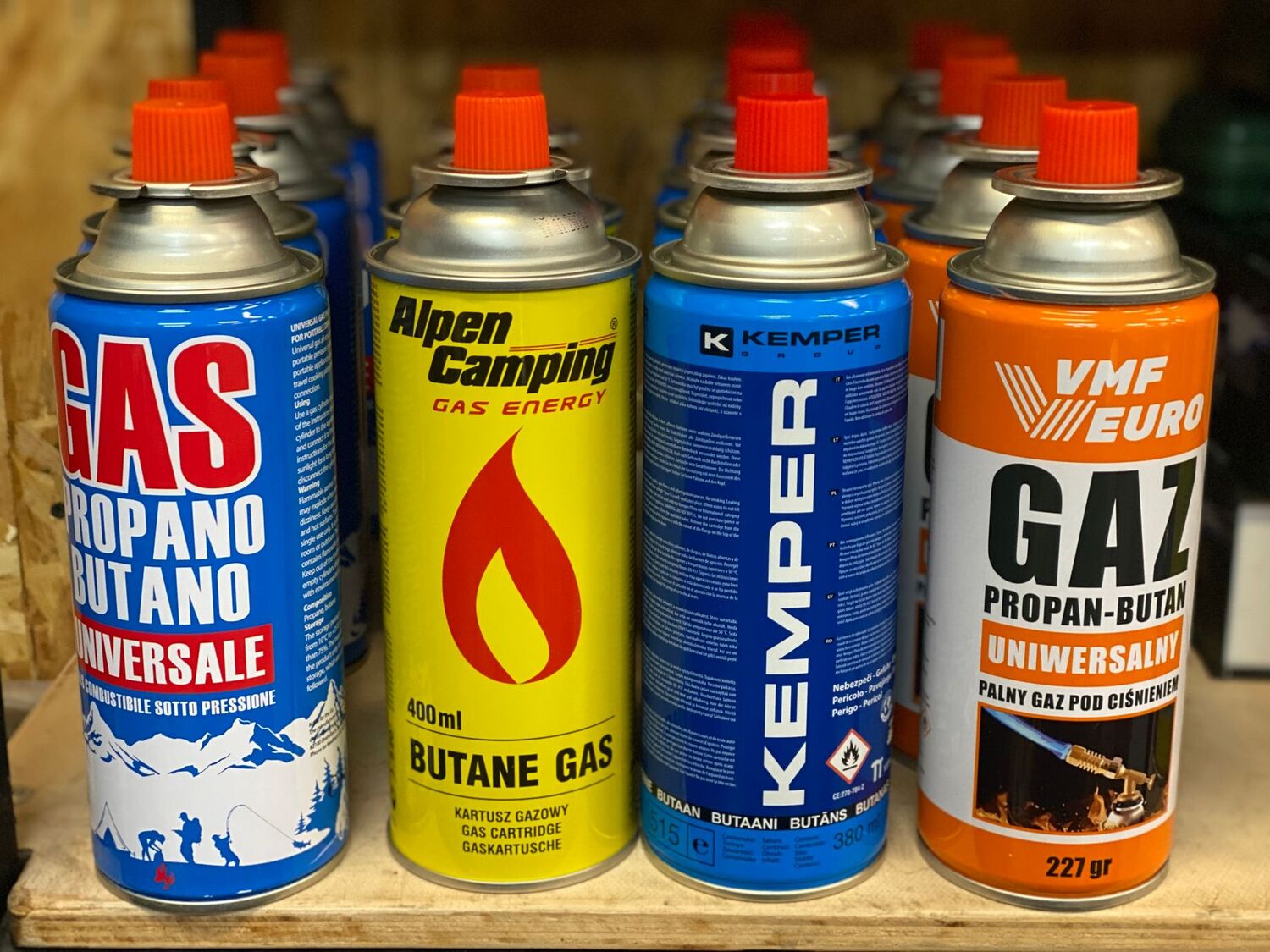

Articles
How To Store Butane
Modified: January 18, 2024
Learn the best way to store butane safely in this informative article. Keep your butane canisters in top condition and extend their shelf life.
(Many of the links in this article redirect to a specific reviewed product. Your purchase of these products through affiliate links helps to generate commission for Storables.com, at no extra cost. Learn more)
Introduction
Butane is a highly flammable gas commonly used in various applications such as camping stoves, lighters, and torches. While it is a convenient source of fuel, it is important to understand the significance of storing butane properly to ensure both safety and longevity.
Proper storage of butane is crucial not only to prevent accidents but also to maintain the quality and effectiveness of the gas. Factors such as temperature, container choice, handling practices, and safety measures should all be taken into consideration when storing butane.
In this article, we will explore the importance of storing butane correctly and provide valuable insights on how to do so effectively. We will also discuss recommended storage containers, proper handling practices, safety measures, and common mistakes to avoid. By following these guidelines, you can ensure the safe and efficient storage of butane.
Key Takeaways:
- Proper storage of butane is crucial for safety, quality, and compliance with regulations. Factors like temperature, container choice, and ventilation play a key role in ensuring safe and effective storage.
- Choosing the right storage container, following proper handling practices, and implementing safety measures are essential for the safe and effective storage of butane. Avoid common mistakes and prioritize responsible disposal for environmental safety.
Read more: How To Store Butane Canisters
Why Proper Storage of Butane is Important
Proper storage of butane is essential for several reasons. Firstly, butane is a highly flammable gas, and if not stored correctly, it can pose a serious safety risk. Improper storage can lead to leakage, which can result in fires, explosions, and even injuries or fatalities.
Secondly, the quality and effectiveness of butane can be compromised if it is not stored properly. Exposure to high temperatures, moisture, or contaminants can cause the gas to degrade or become less potent. This can affect the performance of devices that rely on butane, such as camping stoves or lighters.
Furthermore, proper storage of butane helps to extend its shelf life. If exposed to adverse conditions, such as extreme heat or direct sunlight, the gas can deteriorate more quickly. By ensuring that butane is stored in suitable containers and in the right environment, you can prolong its usability and avoid wastage.
Another important reason for proper storage is compliance with local regulations. Depending on your location, there may be specific guidelines or laws regarding the storage of flammable substances. Adhering to these regulations not only ensures your safety but also helps you avoid legal complications.
In summary, the importance of proper butane storage can be summarized as follows:
- Safety: Prevent accidents, fires, and injuries.
- Quality and Effectiveness: Maintain the potency and performance of butane.
- Shelf Life: Extend the usability and avoid waste.
- Compliance: Adhere to local regulations and avoid legal issues.
By recognizing these reasons, you can understand the significance of proper storage and take the necessary precautions to ensure the safety and longevity of butane.
Factors to Consider when Storing Butane
When it comes to storing butane, there are several factors that need to be considered to ensure proper storage conditions. These factors include temperature, container choice, ventilation, and location.
Temperature: Butane should be stored in a cool and dry environment. High temperatures can increase the pressure inside the container, leading to potential leakage or even explosion. It is recommended to store butane at or below room temperature, ideally between 40°F (4°C) and 70°F (21°C).
Container Choice: Choosing the right container for storing butane is crucial. The container should be designed for storing flammable gases and should have a tight seal to prevent any leakage. Look for containers that are specifically labeled for storing butane or other flammable substances. Avoid using containers made of glass or materials that can easily break or crack.
Ventilation: Proper ventilation is important to dissipate any buildup of gas vapors. Ensure that the storage area has proper ventilation to prevent the accumulation of flammable gas. Avoid storing butane in confined spaces without sufficient airflow, as this can increase the risk of ignition.
Location: It is important to store butane in a location that is away from sources of heat, flames, or sparks. Keep it in a well-ventilated area away from direct sunlight, open flames, electrical appliances, or any other potential source of ignition. It is also recommended to store butane in a secure area, away from the reach of children or pets.
Handling: When storing butane, it is crucial to handle it with care. Avoid dropping or mishandling containers, as this can cause damage or lead to leakage. Always read and follow the manufacturer’s instructions for proper handling and storage.
Compatibility: When storing butane, it is important to ensure compatibility with the devices or equipment you will be using it with. Check the specifications and recommendations provided by the manufacturer to ensure that the butane you are using is suitable for your specific application.
By considering these factors and following the recommended guidelines, you can create a safe and suitable storage environment for butane, ensuring its longevity and minimizing potential hazards.
Recommended Storage Containers for Butane
Choosing the right storage container for butane is essential in ensuring safety and preserving the quality of the gas. Here are some recommended storage containers to consider:
- Butane Canisters: These are specifically designed for storing butane and are available in various sizes. Butane canisters are typically made of metal and have a tight seal to prevent leakage. They often come with a built-in valve or nozzle for easy dispensing. Look for canisters that are DOT (Department of Transportation) approved, as they meet certain safety standards.
- Refillable Lighter Containers: If you plan to store smaller quantities of butane for refilling lighters, a refillable lighter container can be a convenient option. These containers are usually made of plastic or metal and have a nozzle or adapter for easy refilling. Ensure that the container has a secure cap or lid to prevent any leakage.
- Storage Bags or Pouches: If you need to store butane cartridges or smaller canisters, consider using storage bags or pouches specifically designed for this purpose. These bags are made of durable materials and have a tight seal to prevent any leakage or evaporation.
- Hermetic Glass Jars: For small quantities of butane, hermetic glass jars can be a reliable option. These jars have an airtight seal, which helps to maintain the quality and potency of the gas. However, ensure that the glass jar is of good quality and can withstand pressure and temperature changes.
- Propane Tanks with Conversion Kit: If you have larger quantities of butane and require long-term storage, you can consider using propane tanks with a conversion kit. These tanks are designed to store flammable gases and can usually be adapted for butane storage. It is important to carefully follow the instructions provided by the conversion kit to ensure safe usage.
When choosing a storage container, always make sure that it is compatible with the size and quantity of butane you intend to store. Read and follow the manufacturer’s instructions for proper filling, sealing, and handling of the container. Store the containers in a cool and well-ventilated area, away from sources of ignition.
Remember, the safety and quality of butane are dependent on proper storage practices, and using the recommended storage containers can help ensure optimal storage conditions for the gas.
Proper Handling and Storage Practices
When it comes to handling and storing butane, following proper practices is crucial to ensure safety and maximize the longevity of the gas. Here are some key guidelines to keep in mind:
- Read and Follow Instructions: Always read and follow the manufacturer’s instructions provided with the butane container. These instructions will provide specific guidelines on proper handling, storage, and usage.
- Store in a Cool and Dry Place: Butane should be stored in a cool and dry environment to prevent degradation and leakage. Avoid exposing it to high temperatures, direct sunlight, or moisture. Ideally, store butane at or below room temperature, preferably between 40°F (4°C) and 70°F (21°C).
- Keep Away from Ignition Sources: Store butane away from sources of heat, flames, sparks, or electrical appliances. This includes open flames, smoking areas, electrical outlets, and any other potential sources of ignition. Minimizing the risk of accidental ignition is essential for safety.
- Ensure Proper Ventilation: Adequate ventilation is important to prevent the accumulation of flammable gases and vapors. Ensure that the storage area is well-ventilated to dissipate any gas buildup. Avoid storing butane in confined spaces without sufficient airflow.
- Avoid Rough Handling: Handle butane containers with care to avoid damage or puncture that could lead to leakage. Avoid dropping, throwing, or mishandling the containers. Even small punctures can cause gas leaks, creating a hazardous situation.
- Keep Out of Reach of Children and Pets: Store butane in a secure area that is inaccessible to children or pets. Keep it in a locked cabinet or high shelf to prevent accidental exposure or misuse.
- Regular Inspections: Periodically inspect the storage containers for any signs of damage or leakage. Check the seals, valves, or nozzles to ensure they are in proper working condition. If you notice any damage or signs of leakage, do not use the container and replace it immediately.
- Separate from Incompatible Materials: Avoid storing butane near incompatible materials such as oxidizers, corrosive substances, or reactive chemicals. These materials can react with butane and pose a safety risk.
By following these handling and storage practices, you can ensure the safe and effective storage of butane. Remember to prioritize safety at all times and consult the manufacturer’s instructions for any specific requirements or recommendations.
When storing butane, keep it in a cool, dry place away from direct sunlight and sources of heat or ignition. Make sure the container is tightly sealed to prevent leaks.
Read more: How To Store Butane Canisters Safely
Safety Measures when Storing Butane
Storing butane safely is of utmost importance to prevent accidents and ensure the well-being of yourself and others. Here are some key safety measures to keep in mind when storing butane:
- Avoid Overfilling Containers: Do not overfill butane containers. Follow the manufacturer’s instructions and recommended fill levels to prevent excess pressure and potential leakage.
- No Smoking: Absolutely no smoking should be allowed in the vicinity of where butane is being stored. Smoking near butane increases the risk of ignition and can lead to fires and explosions. Maintain a strict no-smoking policy in the storage area.
- Fire Safety Equipment: Keep fire safety equipment nearby, such as fire extinguishers and fire blankets, in case of emergencies. Make sure you know how to properly use them in case of a fire or explosion.
- Proper Labeling: Clearly label butane storage containers to indicate the contents and any associated hazards. This will help individuals identify the contents and handle them appropriately.
- No Direct Sunlight: Avoid exposing butane containers to direct sunlight for prolonged periods. Heat from the sun can increase pressure and temperature inside the container, leading to potential leakage or even explosions.
- Keep away from Electrical Appliances: Store butane away from electrical appliances or sources of heat that can ignite or cause a spark. Avoid storing butane near ovens, heaters, or any other devices that generate heat.
- Proper Disposal of Empty Containers: Once the butane container is empty, do not discard it with regular household waste. Follow local regulations for the proper disposal of empty butane containers. Typically, these containers can be recycled at designated facilities.
- Educate and Train: Educate yourself and others on the proper handling and storage of butane. Take the time to train individuals on safety practices and emergency procedures in case of accidental releases or fires.
- Emergency Contacts: Keep emergency contact numbers readily available in case of accidents or emergencies. This includes local fire departments, poison control centers, or any other relevant emergency services.
Remember, safety should always be the top priority when storing butane. By following these safety measures, you can minimize the risks associated with storing butane and ensure a safe environment for everyone.
Common Mistakes to Avoid when Storing Butane
When it comes to storing butane, there are some common mistakes that should be avoided to ensure safety and proper storage conditions. Here are some key mistakes to steer clear of:
- Storing Near Heat Sources: One of the most common mistakes is storing butane near heat sources such as ovens, heaters, or electrical appliances. The heat can increase pressure inside the container and lead to leakage or even explosions. Always store butane away from any sources of heat.
- Exposing to Direct Sunlight: Another mistake to avoid is exposing butane containers to direct sunlight. Sunlight can increase the temperature and pressure inside the container, potentially causing leaks or explosions. Store butane in a cool and shaded area away from sunlight.
- Ignoring Storage Temperature: Neglecting the appropriate storage temperature is another common mistake. Butane should be stored in a cool environment, ideally between 40°F (4°C) and 70°F (21°C). Avoid storing butane in areas that are too hot or cold as this can affect the quality and performance of the gas.
- Improper Ventilation: Insufficient ventilation can lead to the buildup of flammable gas vapors, increasing the risk of fire or explosion. Avoid storing butane in confined spaces without proper airflow. Ensure that the storage area is well-ventilated to prevent the accumulation of hazardous gases.
- Using Improper Containers: Using containers that are not designed for storing flammable gases is a mistake that should be avoided. Always use containers specifically designed for butane storage. These containers are constructed with materials that can safely handle the pressure and properties of butane.
- Failing to Check for Leaks: Regularly checking for leaks is vital when storing butane. Even small leaks can lead to hazardous situations. Periodically inspect the containers for any signs of damage or leakage. If you notice any leaks or damage, immediately discontinue use and replace the container.
- Disregarding Manufacturer’s Instructions: Ignoring the instructions provided by the manufacturer is a common mistake. Each butane container may have specific guidelines on storage, handling, and disposal. Always read and follow the instructions provided by the manufacturer for proper usage and storage.
- Storing in Inaccessible Areas: Storing butane in areas that are easily accessible to children or pets is a mistake that poses unnecessary risks. Keep butane containers in a secure place that is out of reach of children or pets to prevent accidental exposure or tampering.
- Storing Expired Butane: Using expired butane or storing butane beyond its expiration date is another mistake to avoid. Expired butane may have decreased potency and can be less effective. Make sure to check the expiration date of butane and discard it if it is past its recommended usage period.
By avoiding these common mistakes, you can ensure the safe and effective storage of butane, minimizing the risk of accidents and maintaining the quality of the gas.
Dispose of Butane Properly
Proper disposal of butane is essential to ensure environmental safety and to prevent any potential hazards. When the butane container is empty or expired, follow these guidelines for its safe disposal:
- Check Local Regulations: Before disposing of butane, familiarize yourself with the local regulations and guidelines for the disposal of flammable substances. Different regions may have specific rules and recommendations for the proper disposal of butane containers.
- Empty the Container: If there is any residual butane left in the container, make sure to completely empty it before disposal. Use the butane until it is completely depleted, following the manufacturer’s instructions for usage.
- Release Pressure: Before disposing of the butane container, ensure that any residual pressure inside the container is released to prevent any potential accidents. Depressurize the container according to the manufacturer’s instructions, if applicable.
- Recycling Facilities: Many cities and municipalities have recycling facilities or local drop-off points specifically designated for the disposal of flammable substances. Contact your local waste management or recycling center to inquire about their policies on accepting butane containers.
- Reputable Disposal Services: If local recycling options are not available, consider using reputable disposal services that specialize in handling hazardous materials. These services adhere to proper disposal protocols and can safely dispose of the butane container in an environmentally friendly manner.
- Proper Packaging: If you are transporting the butane container to a disposal facility, ensure that it is securely sealed to prevent any leakage or accidents during transportation. Use the original packaging if available or use a sturdy and leak-proof container.
- Don’t Pour Down Drains or Trash: Never pour butane or any other flammable gas down drains, sinks, toilets, or any other water sources. It can contaminate waterways and cause environmental harm. Similarly, avoid disposing of butane in regular household trash as it can pose a risk to waste management personnel and the environment.
Remember, improper disposal of butane can have detrimental effects on the environment and even pose safety risks. It is essential to follow proper disposal procedures and adhere to local regulations to ensure the safe and responsible disposal of butane containers.
Conclusion
Storing butane properly is of utmost importance to ensure safety, maintain the quality of the gas, and prolong its shelf life. By following the guidelines and best practices discussed in this article, you can create a safe and suitable storage environment for butane.
We covered the importance of proper storage, including the prevention of accidents, maintaining the quality and effectiveness of butane, and complying with local regulations. Factors such as temperature, container choice, ventilation, and location should all be considered when storing butane.
In addition, we provided recommendations for suitable storage containers, such as butane canisters, refillable lighter containers, storage bags or pouches, hermetic glass jars, and propane tanks with conversion kits. Using the right container is crucial in ensuring safe and effective storage.
We also discussed proper handling and storage practices, which include reading and following instructions, storing in a cool and dry place, keeping away from ignition sources, ensuring proper ventilation, avoiding rough handling, and regularly inspecting for leaks.
To ensure maximum safety, it is essential to implement safety measures such as avoiding overfilling containers, no smoking in the storage area, having fire safety equipment on hand, proper labeling, keeping butane away from heat sources and electrical appliances, and knowing the proper disposal methods.
It is also important to be aware of common mistakes to avoid when storing butane. These include storing near heat sources, exposing to direct sunlight, ignoring storage temperature, improper ventilation, using improper containers, failing to check for leaks, disregarding manufacturer’s instructions, storing in inaccessible areas, and storing expired butane.
Lastly, we emphasized the need for proper disposal of butane when the container is empty or expired. Checking local regulations, recycling facilities, or reputable disposal services can ensure the environmentally friendly and safe disposal of butane containers.
By following these guidelines and best practices, you can store butane safely, prevent accidents, and maintain the quality and effectiveness of the gas. Prioritizing safety and responsible storage practices will help you enjoy the benefits of butane while minimizing risks and ensuring a well-organized storage process.
Frequently Asked Questions about How To Store Butane
Was this page helpful?
At Storables.com, we guarantee accurate and reliable information. Our content, validated by Expert Board Contributors, is crafted following stringent Editorial Policies. We're committed to providing you with well-researched, expert-backed insights for all your informational needs.
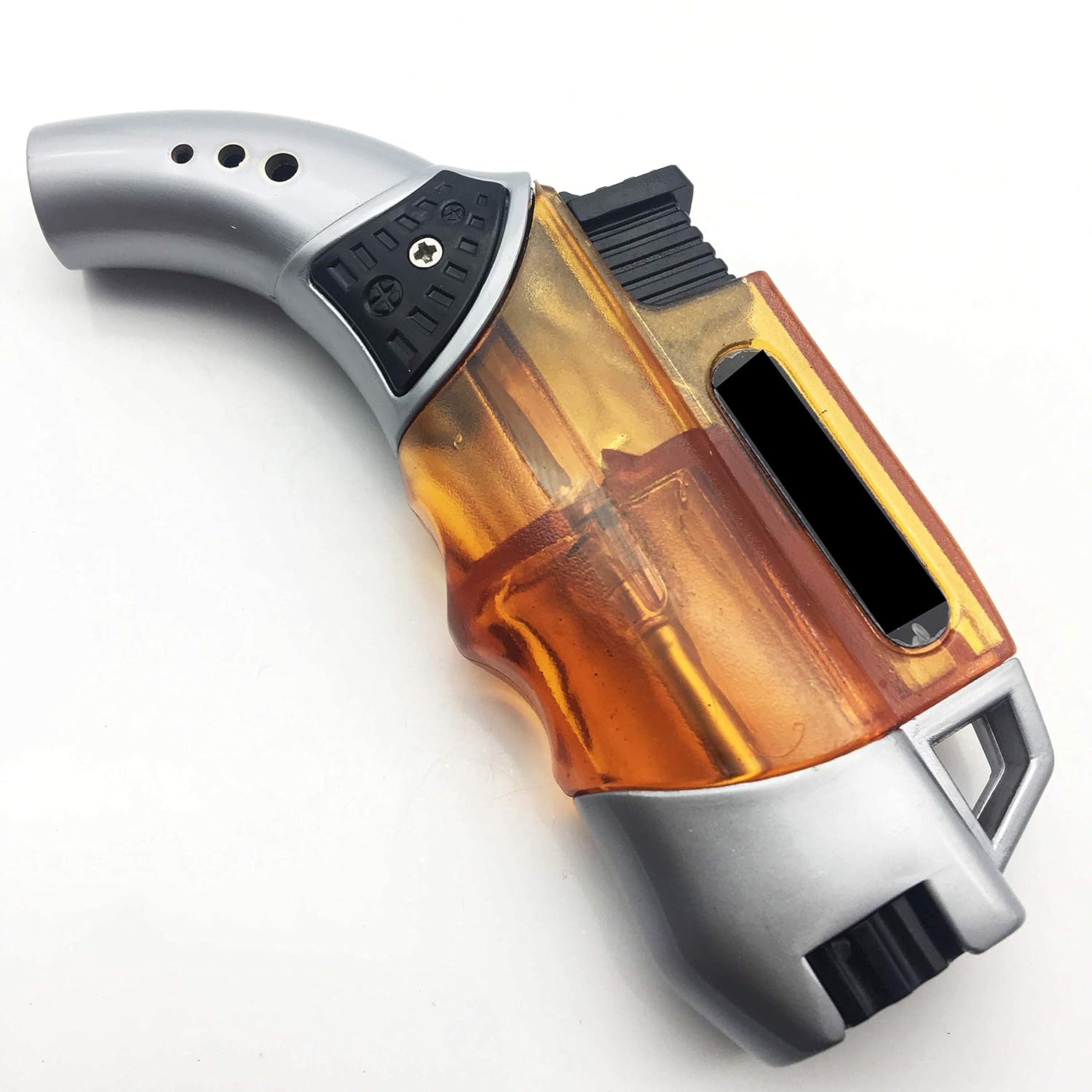
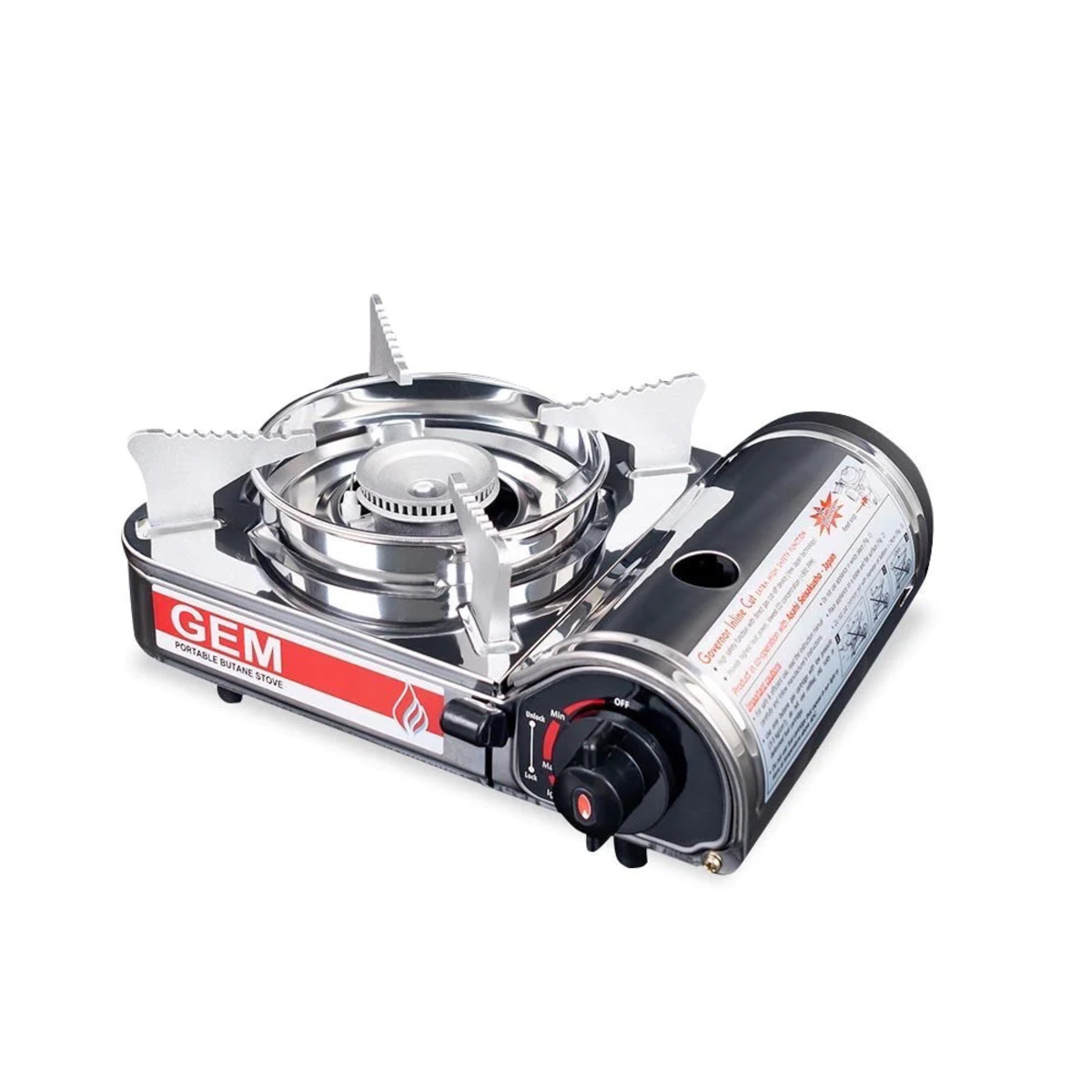





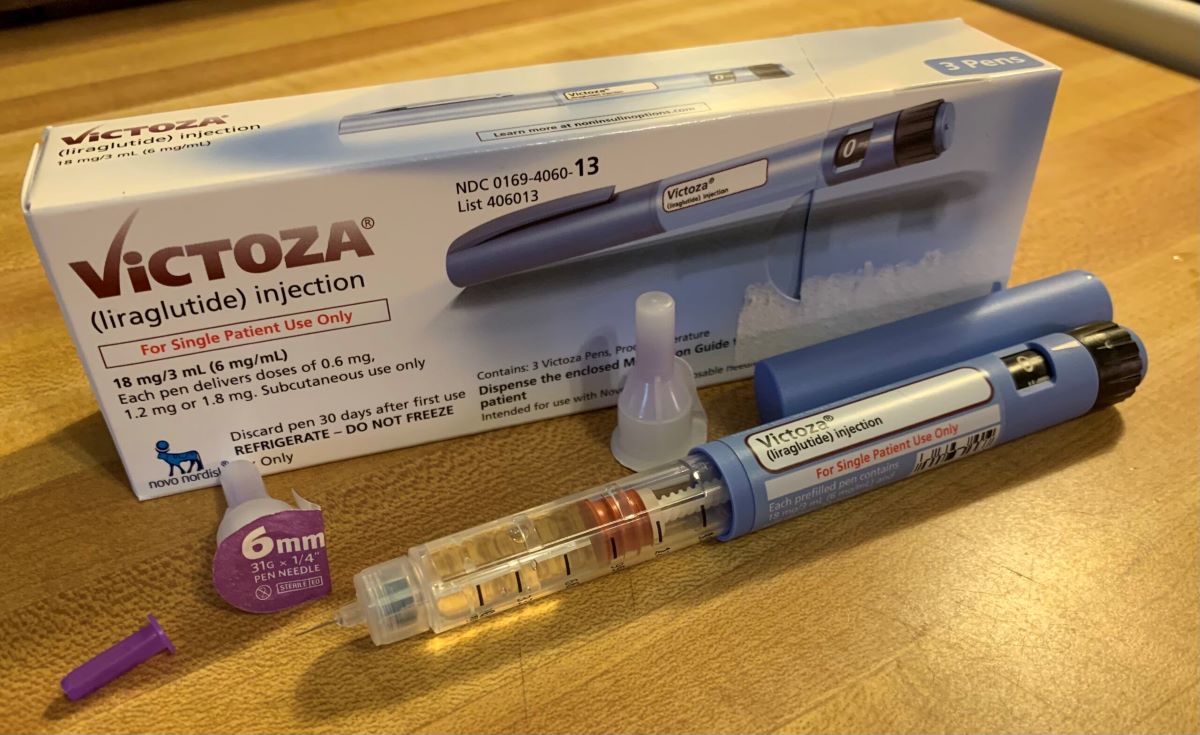



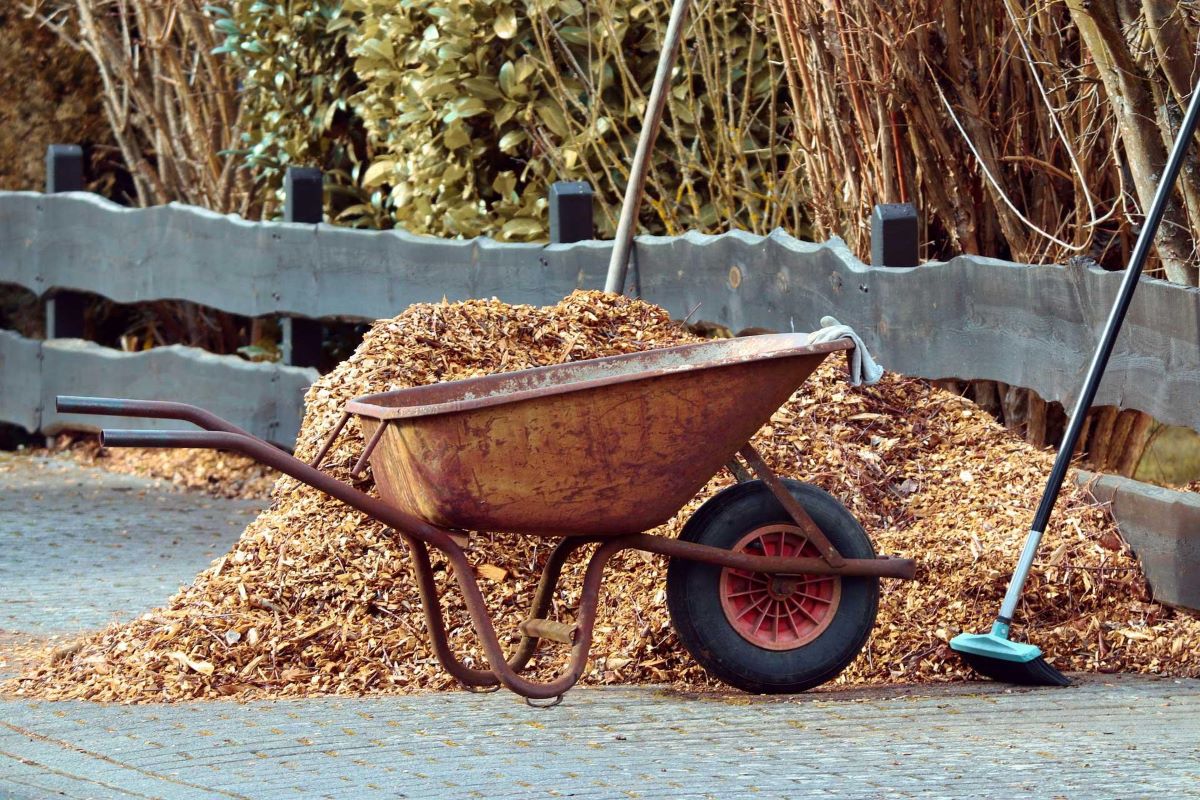



0 thoughts on “How To Store Butane”